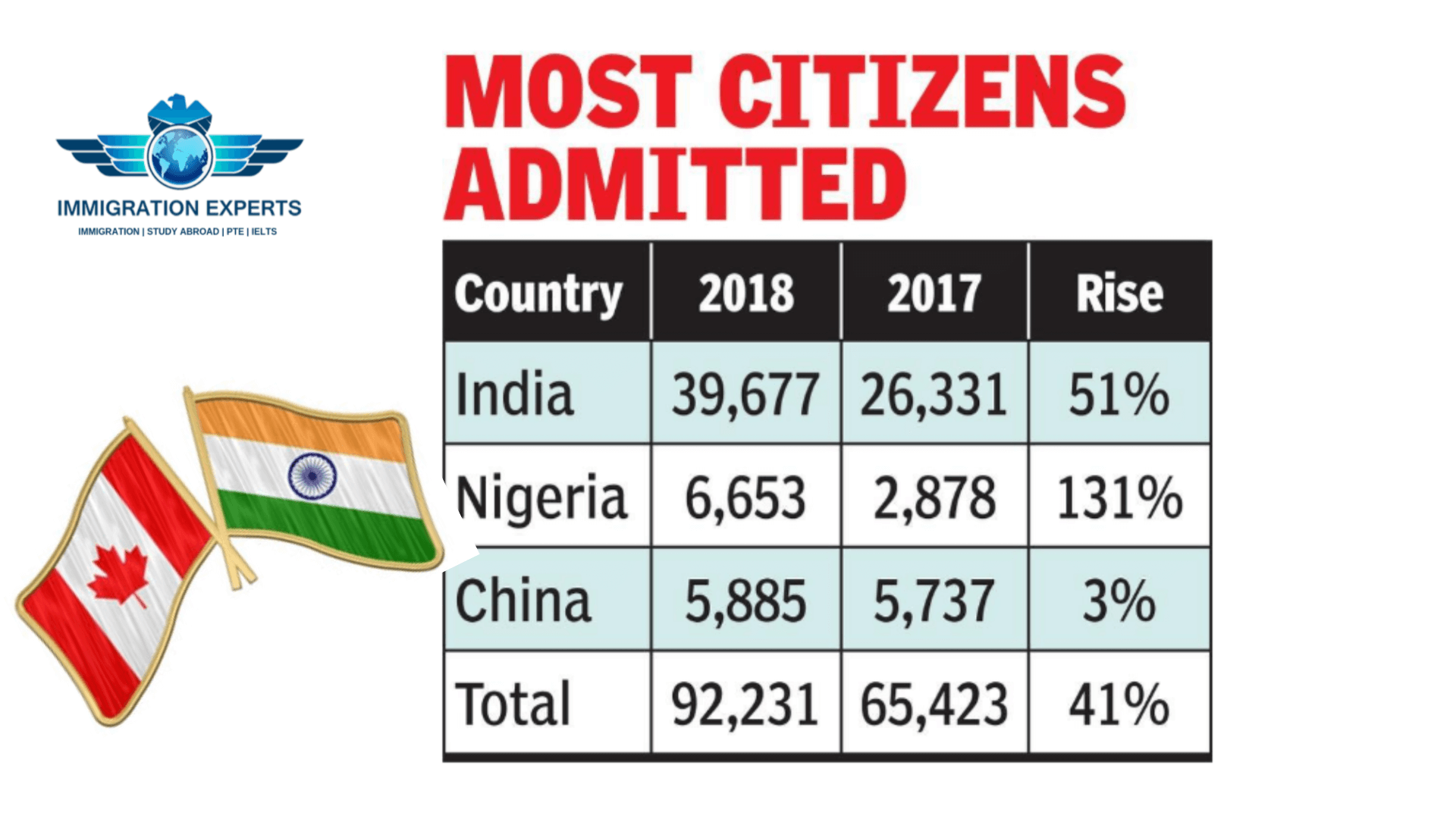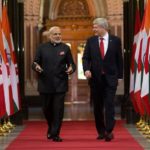
51% jump in Indian getting Canadian ‘green card’
MUMBAI: The interest of the Indian diaspora (including the US-based diaspora) in obtaining permanent residence in Canada continues unabated. In 2018, more than 39,500 Indian citizens obtained permanent resident status in Canada under the express entry system (this represents 43% of the total number).
According to recently released statistics, Canada has admitted more than 92,000 new permanent residents in 2018 through its rapid entry system, an increase of 41% over the previous year. Permanent residence is similar to a green card in the United States.
The year before, in 2017, Canada had admitted almost 65,500 permanent residents on the express access route, 40% of which, or 26,300, came from India. The number of Indian citizens who will be granted permanent resident status in 2018 has increased by 51% over 2017.
Interestingly, China, ranked second in 2017, slipped to third place with only 5,800 Chinese having permanent residence in 2018. Nigeria was in second place. The number of invitations sent to Chinese citizens showed negative growth. (See the table)
In previous editions, YOU explained how Indians working in the United States faced issues such as H-1B visa delays or refusals, green card arrears, or even the proposed revocation of the H-1B visa. right of H-1B wives to work, translates into a migratory flow to neighboring Canada.
People in India are also increasingly turning to Canada for employment or permanent employment. The Global Talent Stream, which had recently moved from pilot status to a permanent program, allows Canadian companies to hire expatriates with STEM training within two weeks. This should increase the number of Indian employees in Canada. In its April 10 edition, it was stated that GST workers could opt for permanent residence.
Express Entry is a system used by the Canadian government to manage permanent resident applications from skilled and qualified workers through three economic immigration programs.
As part of the Express Enrollment program, candidates complete an online profile and are placed in the Express Entries group and ranked against each other based on their scores in the Full Ranking System (CRS). CRS considers the existence of an offer of employment, its age, its training, its professional experience and its skills in English and French. Those who exceed the limit (1,200 maximum) are sent "invitations to apply" for permanent residence.
"The principal countries of citizenship based on those admitted to Canada generally reflect those of the invited candidates. Nearly half of those admitted in 2018 were Indian citizens, "said Immigration, Refugees and Citizenship Canada, Canada's immigration division, in its year-end report, Express Entry, recently released.
In 2018, 41,675 invitations (46% of the total) were sent to Indian citizens. In 2017, out of a total of 86,022 invitations, 36,308 or 42% were sent to Indians.
Express prints are organized periodically. The most recent took place on June 21, with a CRS threshold of 462 points and 3,350 candidates will be invited to become permanent residents.
Overall, Canada's multi-year plan for immigration levels is committed to welcoming more permanent residents (including for humanitarian reasons) over a three-year period. It has set a target of 3.30 lakh for 2019 and 3.40 lakh for 2020.
Realated Posts
Get A Free Quote / Need a Help ?
Contact Us





